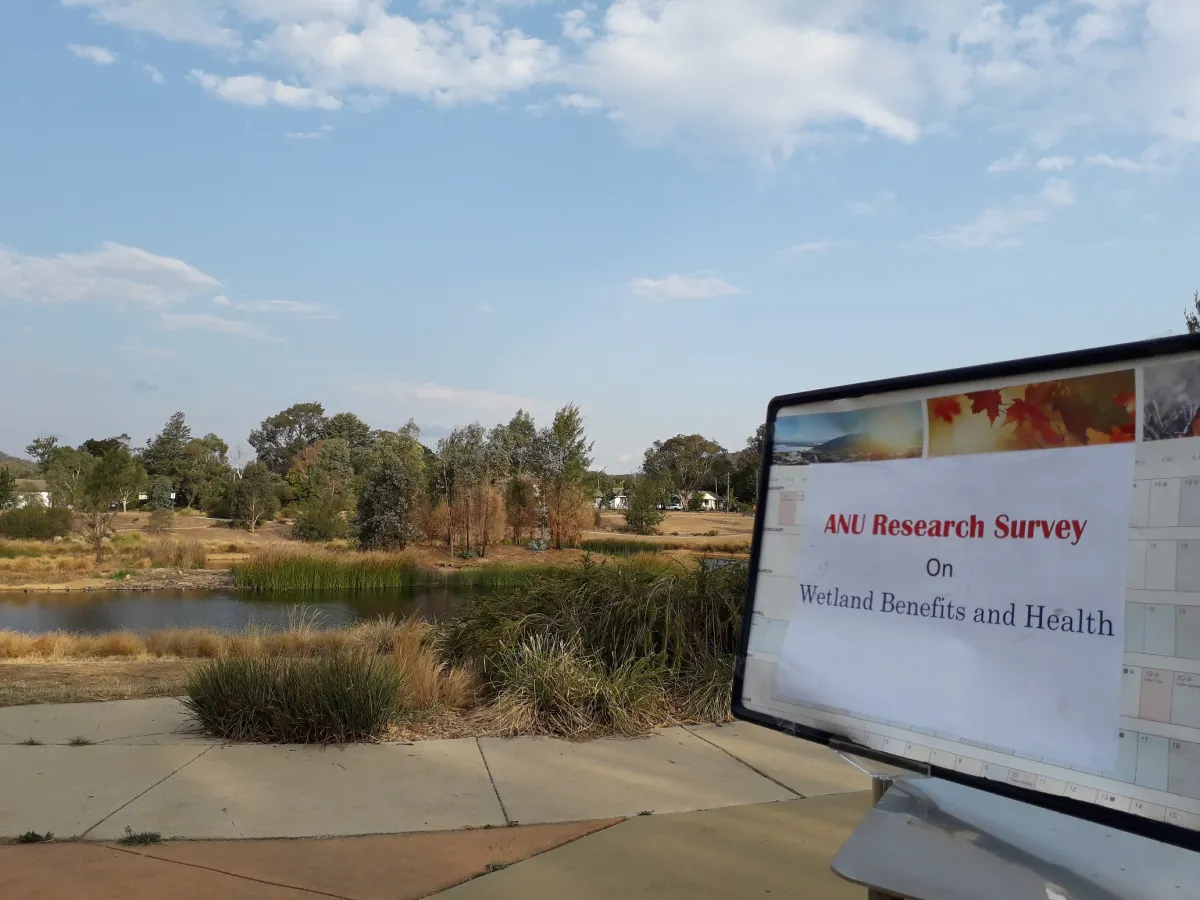Water Quality of Urban Lakes and Ponds for Recreational Use in Canberra
A discussion of the challenges and opportunities for promoting safe and enjoyable water-based recreational activities in urban Canberra
Cost
Cost per person: 0.00
Content navigation
Description

Aquatic ecosystems are fundamental for human well-being, health, livelihood, and survival. While water-based recreation is globally popular, such exposure can pose direct and indirect risks to human health. Elevated levels of faecal bacteria in waterways indicate the possible presence of pathogenic (disease-causing) organisms that also live in human and animal digestive systems.
Australia is considered to be the driest continent globally, with over 87% of Australians living within 50 km of the coastline. Canberra, is surrounded by an array of water features such as lakes, ponds, and wetlands and water-based recreation is an integral aspect of the outdoor lifestyle and tourism in the city. But poor water quality can have negative impacts, such as the closure of swimming beaches when faecal indicator bacterial (FIB, enterococci) concentration exceeds safe levels (FIB > 200 colony-forming unit per 100 mL). Hydro-meteorological variables are hypothesised as major drivers of FIB variation in urban water bodies.
This PhD research aims to provide insights into the challenges and opportunities for promoting safe and enjoyable water-based recreational activities in urban Canberra. The presentation will cover microbial risks associated with recreational freshwater exposure globally, recreational use of urban ponds and community perception of water quality in Canberra suburbs, spatio-temporal variation of faecal indicator bacteria (FIB) exceedance, and the association between hydro-meteorological parameters and FIB concentration in the city’s three main swimming lakes (Lake Burley Griffin, Lake Ginninderra and Lake Tuggeranong).

About Ripon
Ripon is a PhD student in the National Centre for Epidemiology and Public Health with an Australian Government Research and Training Scholarship. He completed his BSc (Honours) in Fisheries from Khulna University (2003-2007) and MS (Thesis) in Fisheries Management from Bangladesh Agricultural University (2008-2009). Prior to starting his PhD program, he had been working full-time as a teacher and researcher in Jashore University of Science and Technology since 2010. His publications have received 600 citations according to Google Scholar.
During PhD program, Ripon's journey was enhanced by engaging in various professional development activities such as participating in Foundations of University Teaching and Learning, serving as a Research Assistant, working as a casual sessional academic, and organizing the NCEPH student conference at ANU. He also holds a Fellowship of the Higher Education Academy (FHEA).
With his interdisciplinary background, Ripon is keenly interested in exploring the intersection between water quality and human health and well-being.
Location
** Hybrid Event **
Bob Douglas Lecture Theatre, Building 62, Mills Road ACTON 2601
or
Meeting ID: 872 6032 1033
Password: 725221
